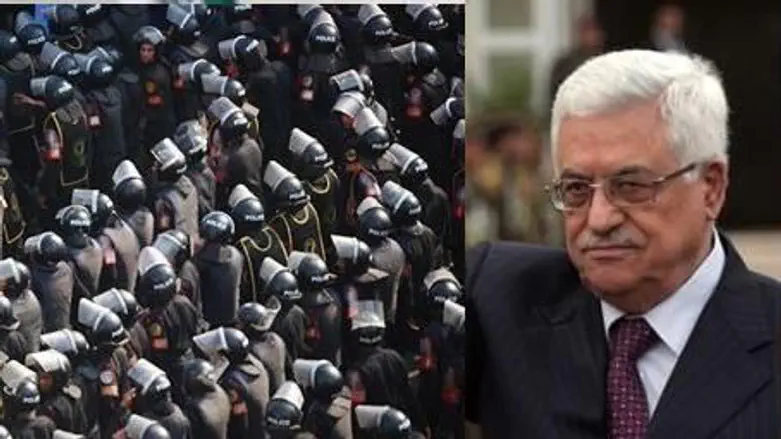
Palestinian Authority Chairman Mahmoud Abbas and de facto Gaza Prime Minister Ismail Haniyeh, worried they also may be struck by “revolutionary fever,” have banned rallies supporting the uprisings in Tunisia and Egypt.
In Gaza, Hamas forces not only broke up a sit-in demonstration but they also beat journalists. In Ramallah, armed PA police confiscated journalists' cameras and ordered them to turn off recorders.
Arab activist Omar Barghouti told the Bethlehem-based Ma'an news agency, "Heavy-handed suppression of the youth-initiated and…peaceful celebration of the Tunisian uprising's overthrow of the dictator, Ben-Ali, indicates where the PA's loyalty lies."
"Autocratic, unelected regimes tend to identify with one another, it seems. The glaring difference here, in the occupied Palestinian territory, is that the PA is trying to 'rule' by decree while we are still under foreign occupation. After Tunis, there is no telling when the next Arab dictator will fall.”
While banning rallies on behalf of the uprising, the Fatah movement, headed by Abbas, has launched a Facebook campaign calling for rallies against the rival Hamas movement. Abbas' regime also has been increasingly criticized for turning the PA into a police state, the same complaint leveled against Mubarak ad the ousted Tunisian leader.
Abbas, who is serving illegally because his term expired more than a year ago, suddenly announced this week that he is planning new elections. He previously has contradicted himself several times concerning his future, saying he will quit and often declaring he will run again.
The PA last year canceled elections that were scheduled for June 2010, ostensibly because Hamas said it would boycott the vote, although the terrorist organization had made the boycott announcement months before Abbas called off the vote.
Although Abbas leads opponents in popularity polls, he has been roundly criticized by PA Arabs for not having established the Palestinian Authority as an independent country as he holds out for Israel to concede to all of his demands.
A poll in December by the Palestinian Centre for Policy and Survey Research showed that only 27 per cent of respondents believed a new state would be formed in the next five years.
The “Arab on the street” identifies with the uprisings in Tunisia and Egypt, according to the Los Angeles Times, which quoted Mahdi Abdul Hadi, a PA-based think tank director, as sayng he is proud of “true, passionate and national young Egyptians.”